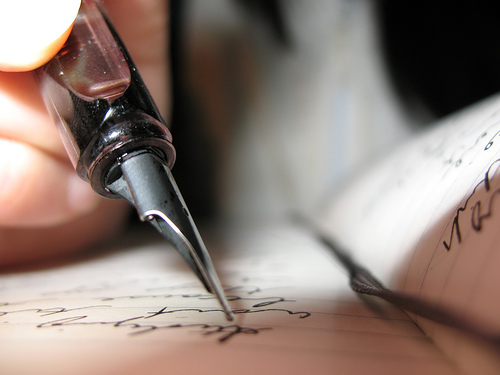Oh my God! I desperately wanted to finish that story. Look! I have abandoned it. I had been working on it for the past one month. It’s been six weeks since I haven’t touched it. Would I be able to resume it? How could I do justice to the story, now, after such a long time of discontinuation? I do have some notes made from the times, while I worked on the stuff. I do not think those notes are of any help, anymore, though.
It is clear to me how vague the classification of writers would
be if I categorized them based on such feelings as above. A writer, at almost
all stages of his or her growth feels this way. Most of those super-successful
writers may not experience it the same way, because they have the ability to pursue
writing without bothering much about another day-job, but apparently have other
issues that affect them the same way.
If writing gives a person immense pleasure or joy, and the
person is forced to work in a bakery in order to make a living, the resulting
conflict could damage the mental equilibrium of that person. Those person(s)
who have no aptitude for working in a bakery, when forced to compromise their
psychological ecosystem with the sophistication of an altogether different
system of things, creative writing suffers. This is when one feels; “Oh my God!
I desperately wanted to finish that story. Look! I have abandoned it.”
The fear for being not able to do justice to one’s work of a lifetime
deserves wise handling. If not, it will consume the writer, wholly. The totality
of all fears has their common grounding in the unknown. In the case of the above-mentioned
writer (let us call him Paul), the unknown part is the quality of his work. Paul
does not know and fears this fact: how would it all turn out to be. How could I do justice to the story now,
after such a long time of discontinuation?
In order to undo the fear of the unknown, the simplest method
can be the Jungian concept of assimilation of psychic realities. Carl Gustav
Jung (1875–1961) was a German psychoanalyst, whose groundbreaking theories on
human mind, guided the world into a modern-renaissance. He argues about a
specific course of action through which a human being can bring out the
contents of his unconscious and experience it in the conscious level in order
to alleviate the pressure from the unconscious side.
This same method is useful in undoing the fear for the unknown
in Paul’s case. If Paul is uncertain of the results his work could bring him
after a considerable gap in the process of writing, he should first, look at
the results. There is only one way he can get the result—by completing the
work. Paul just needs some gut feeling to cross the initial fear.
If one is stuck with the fear of how the work would turn out to be,
the possibility of writing a book or a story is obliterated entirely. It is up
to you to take that step courageously. Your work deserves to be born, simply
because you have such strong feeling for it. Let your fears not obligate the
stopping of your creative work.
 Anu Lal is the author of Wall of Colors and Other Stories. He lives in Kerala, South India. He blogs at The Indian Commentator
Anu Lal is the author of Wall of Colors and Other Stories. He lives in Kerala, South India. He blogs at The Indian Commentator 














